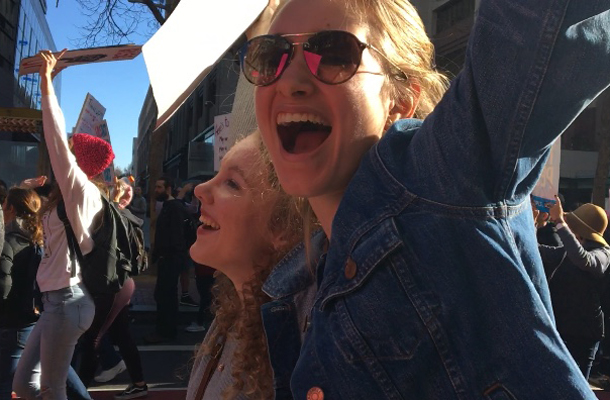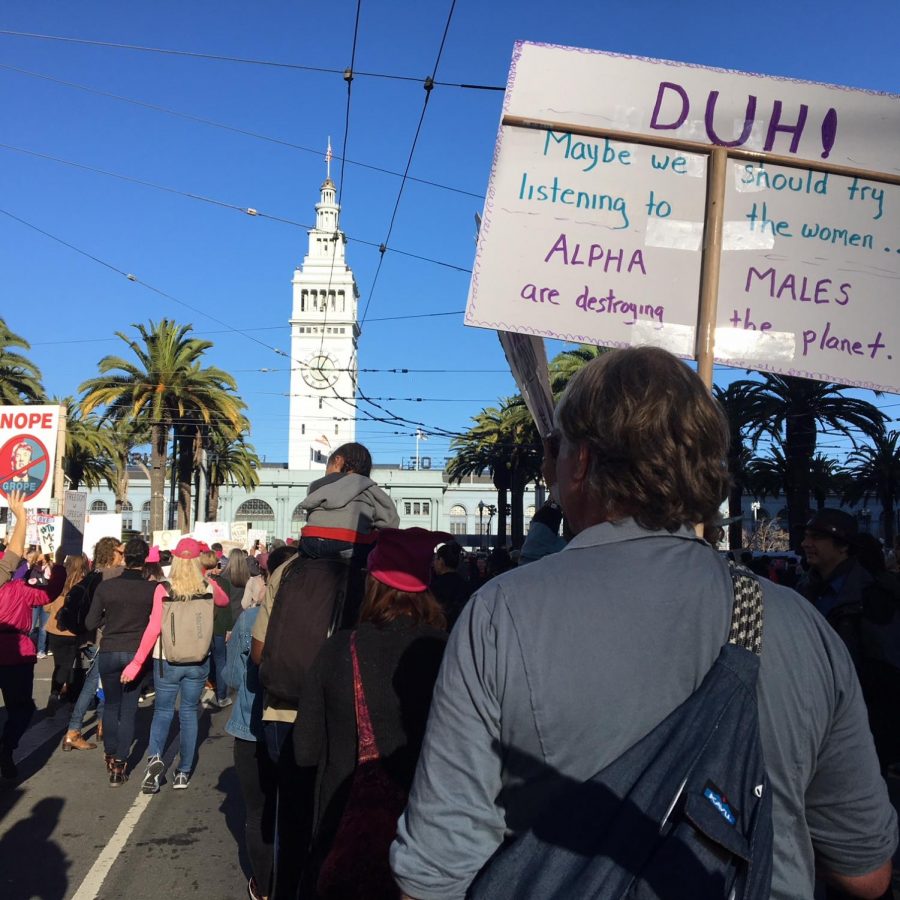Local Women Join World-Wide Movement
January 26, 2018
Marking 1 year since President Trump’s inauguration, protestors took to the streets of major cities worldwide for the 2nd-annual Women’s March on on January 20. Several Bay Area cities, including San Francisco, Oakland, and Walnut Creek, held events in which Campolindo students and staff participated.
Members of the Women’s Awareness on Campus (WAC) Club met at Lafayette BART on January 20 and then convened in Oakland, joining a march that began at Lake Merritt and ended at Frank Ogawa Plaza.
The Women’s March was just the beginning of events the WAC is planning for the spring. “We’re going to be having a ‘power month’ in March, so every Wednesday we’ll meet instead of every other Wednesday and focus on different topics. We’re going to have guest speakers to bring in more perspective,” said Mia Asuncion, co-president of WAC.
“We had a meeting the Wednesday after the march about what we thought of the march and how we can go forward from that, especially moving into intersectionality. We saw this one poster that said, ‘Feminism without intersectionality is white supremacy,’ and we talked about how sometimes we advocate for things that women have issues with, but we never really focus on other groups within, such as with people of color and the LGBTQ+ community,” Asuncion added.
“I felt like I was a part of something bigger,” said junior Claire Sebree. “Being in a small, white, conservative town kind of sucks sometimes because you’re boxed off from the rest of the world and other opinions and general diversity. Taking the ideas that were at the march that other people have and bringing them here and exposing them to people that might not have been exposed to that kind of thinking is really important,” she said.
Last year’s Women’s Marches are believed to be the largest single-day demonstration in US history at around 3.2 million, according to the Washington Post, compared to turnout this year estimated at over 1 million in the United States. 60,000 protestors are estimated to have marched in San Francisco, and 50,000 in Oakland this year, according to Fortune.
This year, the movement aimed to do more than protest the office of the president. Marches this year were also focused on increasing voter turnout.
An additional rally on January 21 was intended to launch a national voter registration tour across the United States, targeting first-time voters in order to elect candidates whose values align with the women’s movement. According to the movement’s website, this next stage “will channel the energy and activism of the Women’s March into tangible strategies and concrete wins in 2018.”
The marches also were influenced by the recent #MeToo movement that has spurred accusations of sexual assault in Hollywood and beyond against some of the world’s most powerful men.
According to Sebree, the women’s movement has expanded from protests against Donald Trump. “[The message] is that we would like not to be sexually assaulted anymore just because we’re women, and also because you’re a male superior it doesn’t give you the right to demand that. I think it still ties in with protesting Donald Trump, and he’s perpetuating this culture that rich, powerful men can get away with whatever they want,” said Sebree.
“I want to spread information wherever I can, just educate people, promote political activism, and share my opinions and stick with the people I love to remind them that we’ll get past this time,” said Sebree.
“I think it’s one thing to go, but people who really are advocating for women’s rights really have to step out of their comfort zones in order to make a change,” said Asuncion. “If you actually are involved in women’s rights activism – everything under that umbrella – you can be part of that, but if you’re just going to go to a women’s march, does that necessarily mean that you’re making an impact? It’s one thing to be marching and having a poster and posting it online saying ‘oh my God, I went!’ But to really go further than that and advocate for women’s rights – like we do in WAC – to us, that’s more important than just marching.”


